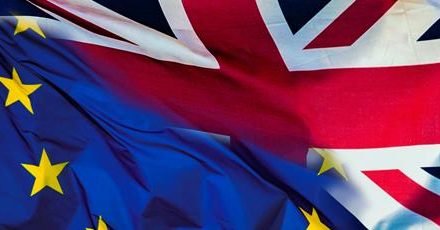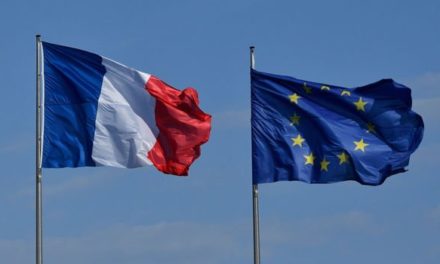As we transition to life outside of the EU, a series of global summits provide the UK with the opportunity to re-define our place on the world stage and to unlock the opportunities that await a truly Global Britain. Britain can and should demonstrate leadership on the international stage by driving forward our prosperity and security agendas.
In the first week of December, the UK Prime Minister will host the next gathering of the 29 heads of state and governments in the North Atlantic Treaty Organisation. As the NATO alliance celebrates 70 years, the summit is a moment to address the current and emerging security challenges and how NATO invests and adapts as a continued pillar of stability in the years ahead. As the host nation, we can once again demonstrate leadership on the security agenda.
The following month in London, the Prime Minister will host the UK-Africa Investment Summit, bringing together businesses, governments and international institutions to showcase and promote investment opportunities across Africa – supporting job creation on the continent (where an additional 55,000 jobs a day are needed to meet the demands of projected population growth) and mutual trading and business partnerships. And in the summer, UK leaders will join Commonwealth contemporaries in Rwanda for the Commonwealth Heads of Government Meeting (CHOGM) 2020.
And it is to Africa that we should focus our attention. In Kigali, the agenda will focus on the opportunities before Commonwealth nations for younger generations to prosper from the phenomena that is technological connectivity. Already Britain is supporting this agenda through CDC – the UK’s development finance institution, which has been investing in Africa for 70 years.
To get an idea of the scale and potential for economic opportunity ahead for Africa and the continent’s trading partners, we can look to the African Continental Free Trade Area (AfCFTA). The AfCFTA was established earlier this year and when it comes into full effect it will be the largest free trade area in the world since the creation of the World Trade Organisation, consisting of 1.2 billion people with combined gross domestic product of $2.5 trillion.
The last Prime Minister sent a powerful signal about Britain’s intent to strengthen our trading partnerships with Africa during Theresa May’s three-nation visit last year. During the visit to South Africa, Nigeria and Kenya, Theresa May announced the UK government’s new ambition to be the largest G7 investor in Africa by 2022. At these summits in the months ahead, it’s crucial that Britain builds from the foundations laid by the previous government to make good on the mutual trade opportunities ahead.
So too that we continue to work with our long-standing multilateral partners to advance well-established initiatives across the Commonwealth. We are not starting from scratch. The Trade Out of Poverty All-Party Parliamentary Group report– Our Shared Prosperous Future – argued that ‘the most sustainable way to lift millions out of poverty across the Commonwealth is through boosting trade and investment, leveraging the [Commonwealth] group’s natural strengths and assets’. With populations set to boom in emerging market economies – and with the prospects for trade that follow, it is a no-brainer for the UK to continue to pursue development partnerships that lay the ground for future trading partnerships.
You need only to visit a local British supermarket to see how sustainable development has laid the foundations for mutually beneficial trade. I visited the Blue Skies factory in Accra which harvests and airlifts freshly cut fruit, such as mango and bananas, to British shops from Waitrose to Marks and Spencer’s. This is a thriving business set up in Ghana by British entrepreneur Anthony Pile.
It is because the British public care that they want to ensure that taxpayer money spent overseas is spent as well as possible. I have seen first hand and been impressed at how the UK Government and investments from our overseas aid budget have helped to create local jobs and drive prosperity in West Africa. Africa is home of some of the fastest emerging economies. The UK imports to Ghana increased by 143.7% in the year to April 2018. The City of London has world class expertise and the DFID Minister Baroness Sugg recently launched a partnership between the London Stock Exchange and Ghana Stock Exchange to help the region become a hub for financial services.
Britain is uniquely placed to capitalise on the potential within emerging market economies.
Effective development assistance has been a proven pathway to security, growth and prosperity.
Consider the case of South Korea. A one-time aid recipient of the UK that has successfully graduated to a high-income status country. In 2017, the UK traded £7.2bn of goods and services with South Korea. A country that borders one of the world’s few remaining totalitarian communist states is now one of our top trading partners in East Asia.
For Britain, development aid alone isn’t the answer to securing peace and prosperity and spreading British values. But it is a critical prerequisite. And that’s why we must continue with our commitments on aid spending, as much as our commitment to our NATO allies on defence spending.
British efforts across the globe mean more children in Pakistan, Afghanistan and Nigeria being vaccinated against preventable diseases like polio; more flows of job-creating investment leveraged within emerging markets to support new trading opportunities in the future; and more prospects for peace and stability in place of insecurity as a result of our country’s ‘soft power’ programmes.
As we enter this new era in our country’s history, it’s time to put rocket boosters behind our country’s international agenda as we transition from Brexit Britain to Global Britain. Yes, re-setting our relations with our European allies. But casting the net far and wide in our efforts to spread security and prosperity. True to our great British values as an outward-looking, internationalist trading nation.
Theo Clarke is the Founder and Chief Executive of Coalition for Global Prosperity and Conservative Prospective MP for Stafford.



